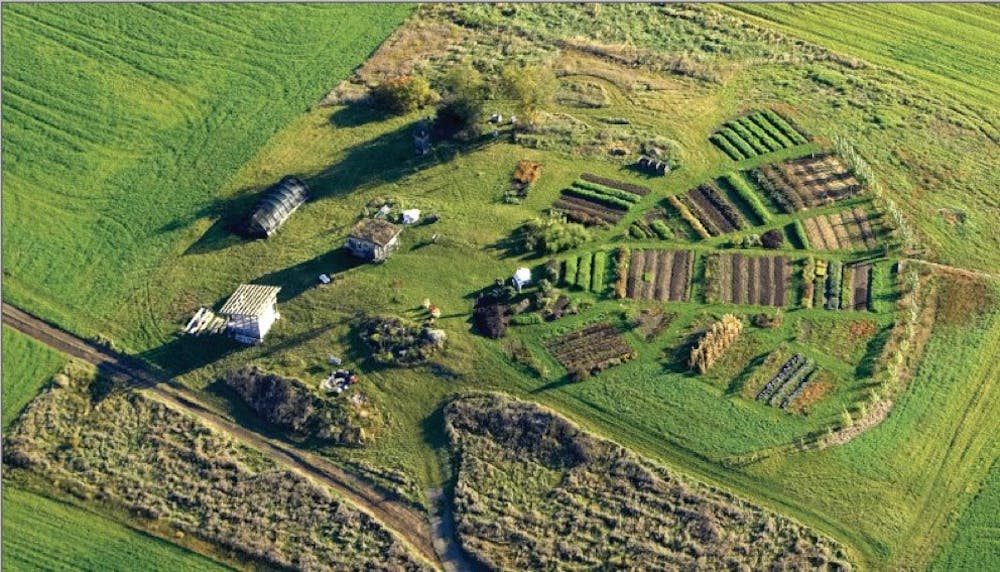Middlebury recently participated in Worldwide Climate and Justice Education Week, a global initiative of hundreds of educational institutions around the world that encouraged conversations about climate change and justice across college campuses.
The initiative at Middlebury included a teach-in during classes, climate-oriented events at the Knoll, a talk on climate anxiety and the Holistic Future Circles series.
During the week of April 1–5, the college asked all faculty to devote at least five minutes of their classroom time to a conversation about climate solutions and justice. At least 60 faculty members participated, according to Associate Professor of Economics Julia Berazneva and Climate Action Program Director Minna Brown, organizers of the initiative.
Middlebury also encouraged students to confirm with faculty that they would participate, and take time in the groups in which they participate to talk about climate justice.
The goal of the teach-in was to get people talking about climate change across disciplines and between students.
“This worldwide effort allows us to participate in something bigger than us, while opening the door to increased and improved course integration and campus-wide engagement. Climate change touches everything,” Brown wrote in an email to The Campus.
In addition to efforts in the classroom, the college held climate-oriented events last week such as The Knoll Volunteer hours and the 2024 Scott A. Margolin ’99 Lecture in Environmental Affairs.
Tara Federoff, sustainability specialist at Franklin Environmental Center at Hillcrest,
organized the Holistic Future Circles event teach-in, as another part of the Worldwide Climate and Justice Education Week.
The goal of Holistic Futures Circles is to explore the concept of holistic sustainability, something that Federoff said is more than just climate justice. Self and community care are two main pillars in a sustainable future and society, ideas that are reiterated in practice both at the Knoll and in the goals of the teach-in.
“The Knoll is an opportunity for students to engage in justice work, moving beyond ideation in the classroom to action in the garden,” Andrés Oyaga ’23, the climate action coordinator, wrote in an email to The Campus.
With the concept of holistic sustainability in mind, the Knoll has built a relationship with local Abenaki tribes by growing indigenous varieties of corn, beans and squash that may otherwise become obsolete. In 2019, Chief Don Stevens of the Nulhegan Abenaki tribe visited Knoll interns and farmers to share his knowledge on Abenaki agricultural practices and food.
“Bringing in indigenous knowledge and indigenous science into the conversation, empowering people who are experiencing the worst effects of climate change to really take action and giving that power redistribution another look,” Federoff said.
Holistic Futures Circles also aims to emphasize the importance indigenous agriculture practices in sustainability and climate justice.
“In the past, especially from a US context, settler colonialism has really created a bad environment for holistic sustainability,” Federoff said. “Co-production of knowledge and co-management from the ground up, not just consultation, is really something we can move mountains with.”
Brown also discussed inequality as the basis of the work in which the Climate Action Program partakes.
“Our work is rooted in the understanding that climate change is deeply unequal and unjust - the people least responsible are those most at risk. Climate justice is also gender justice, racial justice, disability justice… It is deeply intersectional,” Brown wrote.
The week culminated with a lecture titled “No Future for Us? Young People's Climate Anxiety and the Future of Reproduction,” by Jade S. Sasser, associate professor in the department of gender and sexuality studies at the University of California, Riverside. Sasser shared research on the emotional and mental health effects of climate change, focusing specifically on the despair and distress young people are feeling about climate change.
Brown described seeing this attitude of despair reflected at Middlebury, and emphasized the importance of making space for these feelings.
“In my role, and through the Teach-In, I so hope that students can see themselves reflected in climate work, feel less alone and isolated, and see how each of their paths can connect to climate action,” Brown wrote.
The aim of the Worldwide Justice and Education Week at Middlebury was to educate and inspire, and for the organizers, it did just that.
“We’ve also had very positive feedback from Middlebury’s awesome faculty who have found numerous ways to incorporate climate change into their courses: from learning climate change vocabulary in a foreign language to discussing environmental impacts of computing to mapping temperature data to art for activism,” Berazneva wrote.




